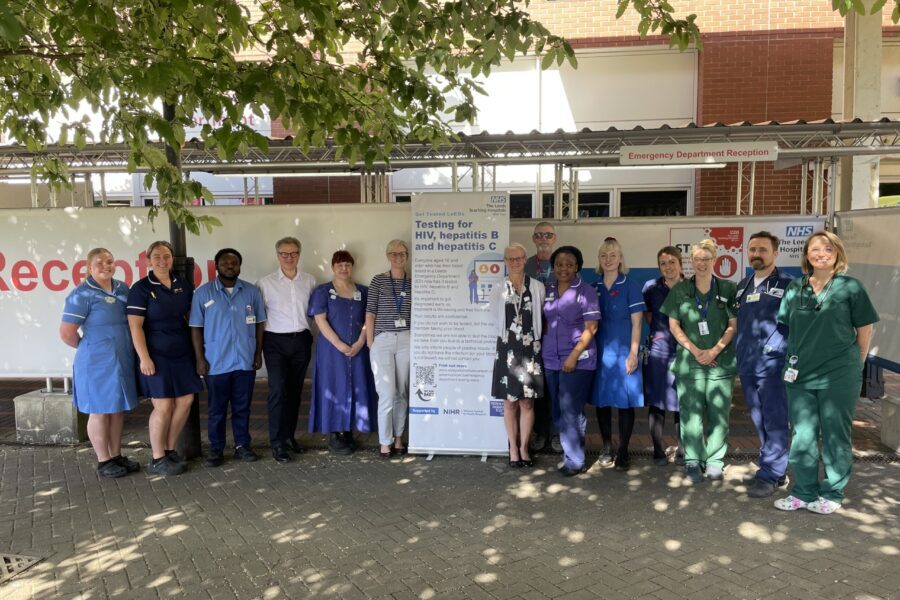
More than 35,000 patients have been tested for HIV and hepatitis B and C in the first eight months of a new project in Leeds hospitals.
The tests have led to 11 new cases of HIV being diagnosed, with seven more identified who were not receiving treatment, and the diagnosis of 101 new or active cases of hepatitis B or C – meaning these patients can now receive life-saving treatment.
Since the project began in late 2024, patients who attend the Emergency Departments at Leeds General Infirmary and St James’s University Hospital and receive routine blood tests are likely to be tested for HIV, hepatitis B and hepatitis C, regardless of symptoms, unless they opt out.
Dr Emma Page, Consultant in Virology at Leeds Teaching Hospitals NHS Trust, said: “Offering routine HIV and hepatitis tests in our Emergency Departments can make a huge difference to patients – it can save lives and give people access to the latest and most effective treatments.
“We’re all at risk of blood borne viruses and the only way we can know whether we have them or not is by having a test. We’ll often feel very well with them until we’ve had the infection for many years.
“This is such a good opportunity to be able to diagnose those individuals who have these infections and don’t realise they do, because we can offer them life-saving treatment. There are tablets that people can take to control the infection and prevent them from getting unwell, or tablets that can actually cure some of these infections. So we’re really excited that these tests are happening in our Emergency Departments at the moment.”
Dr Sarah Schoeman, Genitourinary Medicine (GUM) Consultant at Leeds Teaching Hospitals NHS Trust, said: “If people are identified as having HIV or hepatitis, there is a very clear, and safe and quick pathway for you to be referred either into the HIV service or hepatitis services, to access care, treatment, support, advice.
“This will ensure that you have all the information you need, to be able to keep yourself healthy going forward, and also eliminate any chance of you passing on any infection to partners as well. Knowing your status means that you have all the options available to you to be able to access excellent treatment and a lot of support as well.”
Anyone aged 16 and over who has blood tests taken as part of their emergency care at Leeds General Infirmary or St James’s University Hospital is likely to be tested for HIV, hepatitis B and hepatitis C unless they opt out and decline. Anyone who tests positive will be contacted within two weeks – no news is good news.
Karina Veitch, Blood Borne Virus Nurse at Leeds Teaching Hospitals, said: “We have had some positive HIV and hepatitis patients who are in their 60s, 70s, and 80s, which just shows what an important piece of work this is, because these patients probably never would have got themselves tested otherwise.”
The national scheme is being rolled out in hospitals across the country, to offer treatment for thousands of people in England who are thought to be living with an undiagnosed blood borne virus.
HIV treatments can suppress the virus, allowing people to live a normal life and prevent infection from being passed on. Hepatitis C can potentially be cured, and treatments for hepatitis B and C can reduce the risk of developing serious illness or complications, such as liver cirrhosis and cancer.
Posters are available in the Emergency Departments at St James’s University Hospital and Leeds General Infirmary, informing patients about the testing, and information is available in a range of formats and languages.
The scheme supports the UK Action Plan to end all new HIV cases by 2030 through earlier identification and detection and the NHS England programme to eliminate Hep C by 2025. Leeds is also a ‘Fast-Track City’ – part of a global initiative to end the HIV, TB and viral hepatitis epidemics by 2030.
